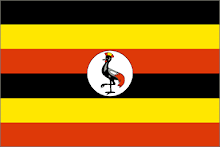After three flights which included a stop for a night in Dubai, and over 10,000 miles of traveling, I emerged from the international terminal after clearing customs in Entebbe, Uganda, where a man named Henry introduced himself to me and told me he was the registrar for the High Court of Uganda.
“You are not home,” he said.
"Huh," I said, not sure, wondering if I heard him clearly.
"You are not home. You are from Pepperdine?"
"Yes," I said, relieved. I wonder what gave me away.
After the 45-minute drive from the airport in Entebbe away from Lake Victoria through the lush hills of rural Uganda, we crested a hill and viewed Kampala for the first time. By the time we’d made it to the Katatumba Suites, the apartments Henry arranged for us near downtown Kampala, it had been more than 44 hours since I left for the airport in Los Angeles. But despite my delirium from a lack of sleep after traveling across three continents, one thing was clear to me after finally setting my bags down: I was definitely not home.
Some random observations: (1) many Ugandan officers walking the streets carry a single-shot rifle as if it was a briefcase or a walking stick. (2) There is a large advertisement for Bell Lager on the building across the street from our apartment (guess what I’m ordering the next time I go to a bar). (3) I don’t blend in here; on streets as I pass groups of men waiting for who-knows-what and young children selling knick-knacks, they call me “muzungu.” When I asked a woman at the salon on the ground level of our apartment building what that meant, her response was obvious and simple: white man. Yup, that about sums it up.
Sunday, May 24, 2009
Subscribe to:
Post Comments (Atom)

Funny. I've never been to Uganda either, but I suspect that if a lot of people -- on your first day no less -- were calling you "muzungu", I would have been able to figure it out its meaning without asking....
ReplyDeleteGlad you seemed to have made the long trek without incident.
Well we all knew you definitely would not blend in! Can't wait to hear what your living and working situations are; pictures would be great (hint, hint). Having read some of your local papers' headlines, I'll be curious to hear what kind of cases you'll be dealing with!
ReplyDeleteHere's more than you probably ever wanted to know about "muzungu".... from wikipedia...
Muzungu is a word meaning "white person" in many Bantu languages of east, central and southern Africa (so your definition source was good!)
Singular form in Uganda: Muzungu
Plural: Bazungu
Possessive:Kizungu
The possessive Kizungu or chizungu translated literally means "of the white people". It has now come to mean "language of the white people" and more commonly English, as it is the language most often used by Wazungu in East Africa. However it can be used generally for any European Language. To distinguish between English and other European languages kiingereza in Swahili or chingeleshi in Bemba are used and are simply Africanized version of the word English by Epenthesis. Wachizungu, Bachizungu etc "literally things of white people" have come to mean the Western culture, foods and lifestyle.
The etymology of the word stems from a contraction of words meaning "one who moves around,"(possibly zunguluka, zungusha-meaning to go round and round) and was coined to describe European traders who traveled through East African countries in the 18th century. The word became synonymous with "white person" because of the traders' complexion. Many rural villages in Tanzania and Kenya are rarely visited by "bazungus" , making Caucasian passers-through an odd sight for young people. Also the mzungu was probably preferred to words linked to color because in central and east Africa people do not link Europeans to white color as most Europeans were trying to translate the name of their race in African languages. They instead see them as reddish or pinkish. For instance in Kinyarwanda and Kirundi white people are also known as rutuku which means red. However it is not used formally because its prefix ru- makes it sounds a little bit derogative.
LC